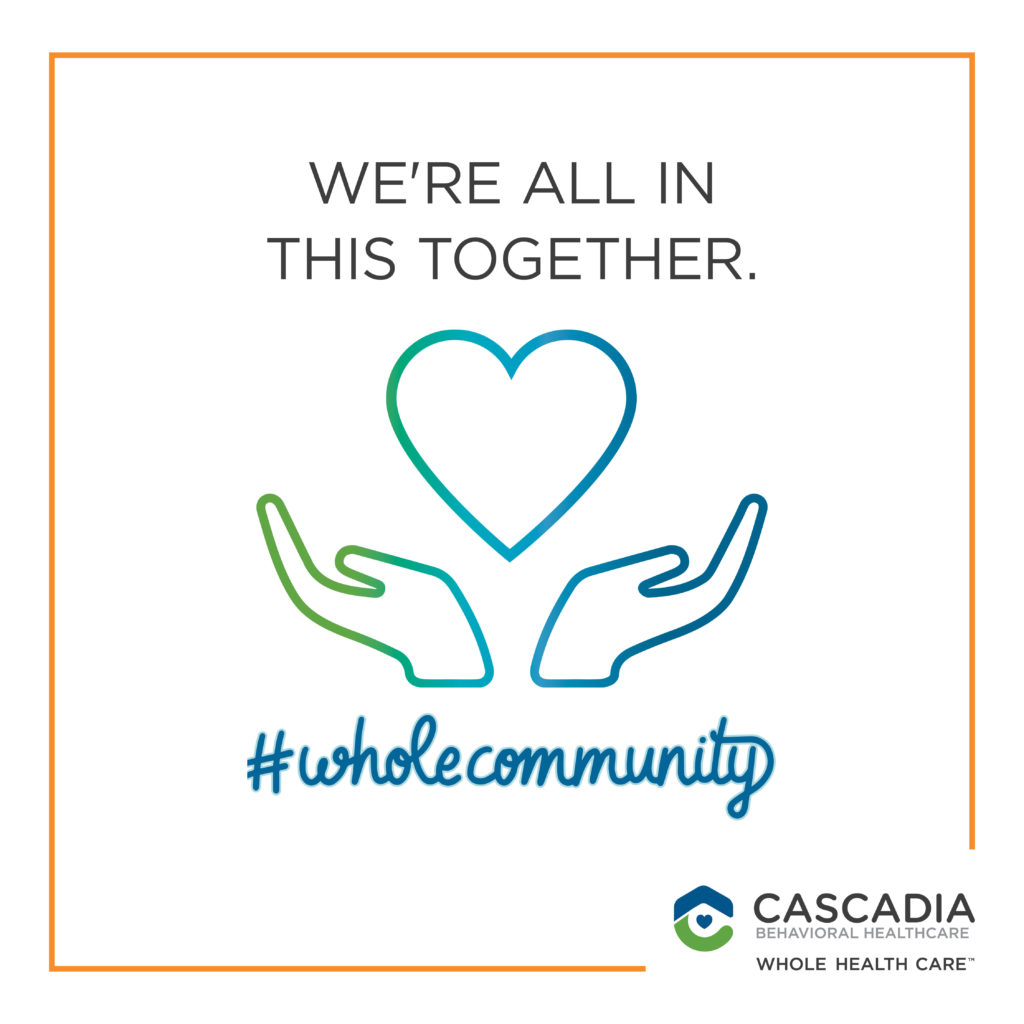March 26, 2020
Monitoring Mental Health during a Stay at Home Order
 The outbreak of coronavirus disease 2019 (COVID-19) may be stressful for people. Fear and anxiety about a disease can be overwhelming and cause strong emotions in adults and children. Coping with stress will make you, the people you care about, and your community stronger.
The outbreak of coronavirus disease 2019 (COVID-19) may be stressful for people. Fear and anxiety about a disease can be overwhelming and cause strong emotions in adults and children. Coping with stress will make you, the people you care about, and your community stronger.
People who may respond more strongly to the stress of a crisis include older people and people with chronic diseases who are at higher risk for COVID-19, children and teens, people who are helping with the response to COVID-19, like doctors and other health care providers, or first responders, and people who have mental health conditions including problems with substance use. Everyone reacts differently to stressful situations. How you respond to the outbreak can depend on your background, the things that make you different from other people, and the community you live in.
There are many ways we can support our community members who may be more isolated during this time. Here are some suggestions on how to help:
ADDRESS ISOLATION
- “Have you been able to connect with people you care about? … A lot of people are thinking about you.” “How are you coping with the loneliness? … I’m sure you’re looking forward to being able to get out and see people again.”
- “Do you feel like you’re going through this alone? … Remember that you are not alone. We care about you and are always here for you.”
CHECK FOR WORSENING DEPRESSION
- “Have you been able to eat? … Are you getting any sleep?”
- “Have you been feeling overwhelmed? Or do you feel like you’re hanging in there?”
- “Is there anything you are able to do that you enjoy? To relax?”
- “Have you been feeling hopeless? Are you able to imagine life returning to normal when this is over?”
CHECK FOR RISK OF SELF-HARM OR SUICIDE
- “Do you feel like you are able to keep yourself safe?”
- “Are you still feeling grateful to be alive?”
- “Have you had any thoughts around harming yourself?”
RE-AFFIRM RESILIENCE, ALTRUISM, AND CONNECTION
- “This is difficult, but you are showing a lot of strength. Thank you for the sacrifice you’re making right now. We are going to stay with you through this process.”
- “This is a stressful time right now, and you are doing well to endure it. You are making a difference in helping the community stay safe. You are not alone in this, and this will not last forever.”
- “I know how hard this is for you. We are so grateful for you and what you are doing for everybody. A lot of people are thinking of you, and you are loved.”
If distress impacts activities of your daily life for several days or weeks, talk to a counselor or medical professional. Cascadia’s Urgent Walk-in Clinic is open seven days a week from 9:00 AM to 9:00 PM and serves all individuals who are facing a behavioral health crisis. Additionally, Multnomah County’s Crisis Line is available 24 hours a day, seven days a week: (503) 988-4888.
For more information on Cascadia’s efforts to address COVID-19 and the impacts of this outbreak, visit: https://cascadiahealth.org/coronavirus-main/.
